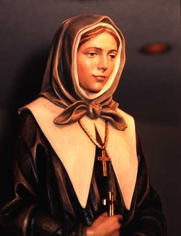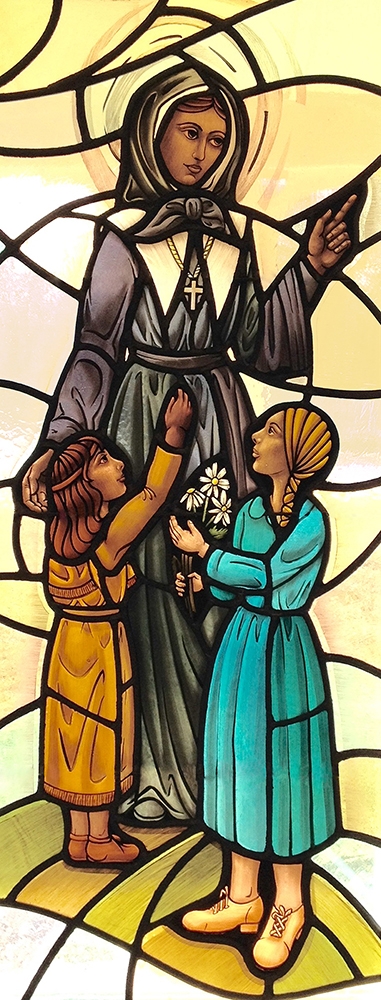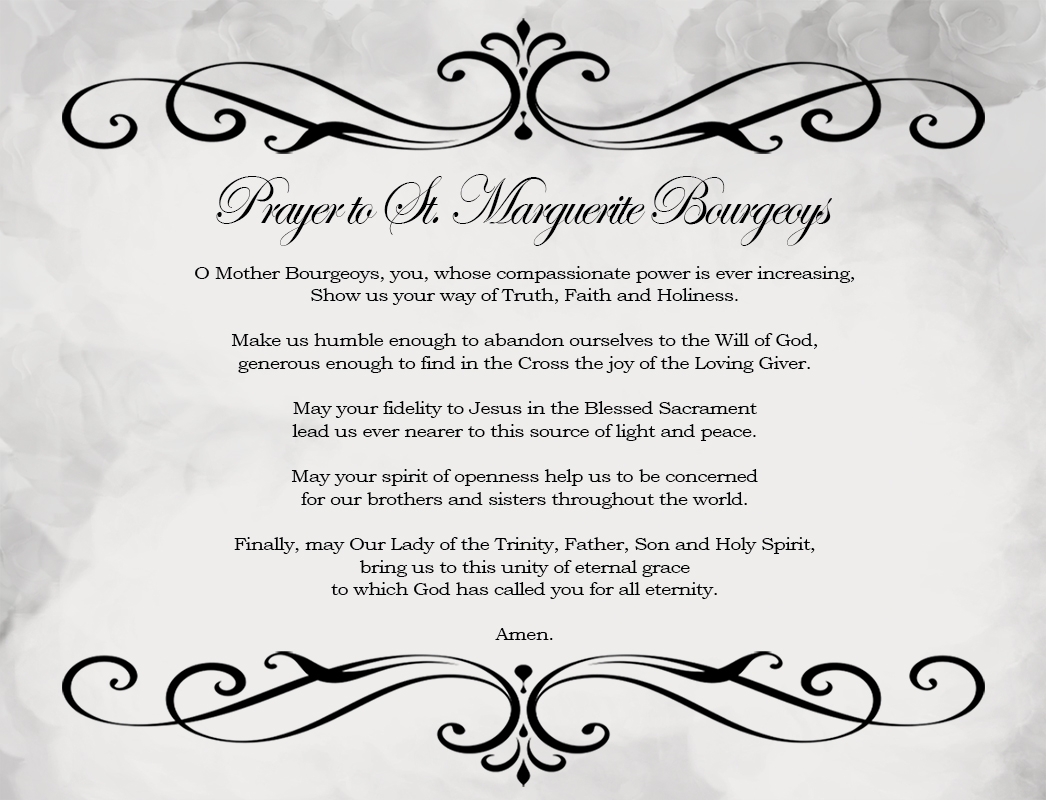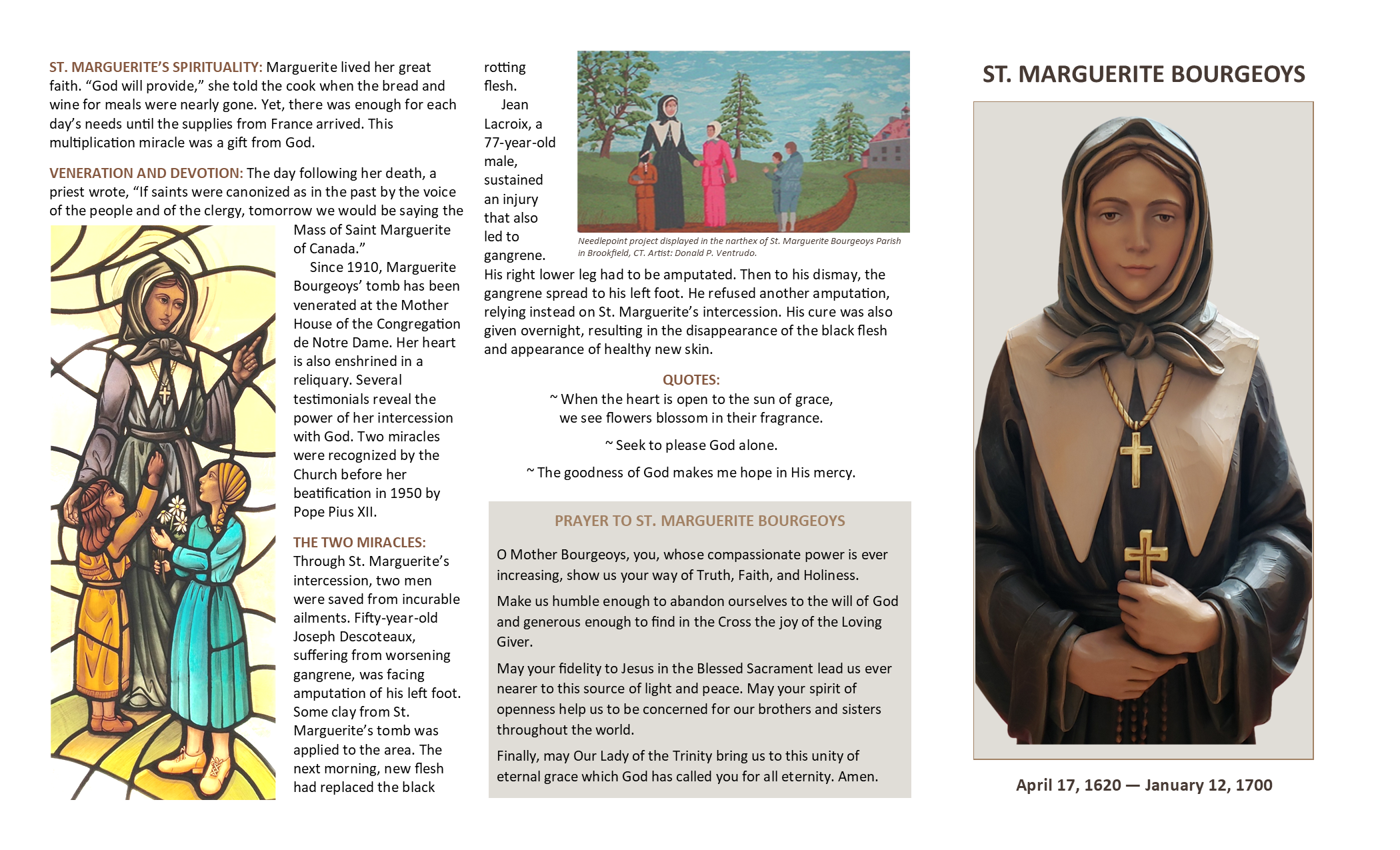St. Marguerite Bourgeoys was born in Troyes, France in 1620, and died in Montreal in 1700. She is renowned for her work, her spirituality, and her impact on society and the Church in North America.
As one of the older girls of a devout Catholic middle class family, St. Marguerite had to assume the responsibility for the household when her mother died. At the age of twenty, she had a conversion experience during a religious procession that profoundly influenced her future mission and focused her values. She felt singled out by the Blessed Virgin, and in response she joined a local group of women who gathered to do charitable work as an extension of a cloister in Troyes. St. Marguerite served as leader of this extern group, and as her service taught the children in the poor section of town. In 1653, Paul de Maisonneuve, founder of Montreal, passed through Troyes and invited St. Marguerite to join him in Ville Marie as a lay teacher, to instruct the children of the colonists and of the Native Americans. In June 1653, she sailed from Nantes on a three-month voyage to the New World.
St. Marguerite became the official guardian to the “filles du roi”, young orphan girls sent by the monarch to establish new families. She lodged them in her own home, served as a matchmaker, and prepared them for their new life as pioneers. Her signature appears as a witness on many of the early marriage contracts in Montreal. As a result of these activities she was affectionately referred to as “the Mother of the Colony”. St. Marguerite made three trips back to France to recruit other women to join her in her work of education and to obtain civil approbation from the king.
St. Marguerite’s apostolic spirituality was a special gift to the Church. She was a woman of action in her time and left a mark on the history of Montreal and education in Canada. She was a woman of faith and deeply committed to the service of the Gospels. She was personally motivated by the missionary journeying of Mary in service to her cousin, Elizabeth, and desired to form a group of uncloistered women who would imitate Mary in this mystery of the Visitation.
St. Marguerite had an exceptional and practical love of God and neighbor. She had a great desire to serve the Church in its most local form, the parish. She exhorted her extern congregation of educators to be “daughters of the parish” – to worship with the people and use the local church as a source of spiritual nourishment.
Her Congregation received Church approbation in 1698 and at that time pronounced vows as uncloistered religious. Today the Congregation de Notre Dame numbers 2600 sisters in North America, Japan, Latin America, and the Cameroons in service to the people of God in the spirit of the Visitation.




